Poetic pairings pontificate and probe
Tragically Hip’s Gord Downie pleaded, “Don’t tell me what the poets are doing / on the streets in the epitome of vague.”
February 28th, 2019

Editor Rob Taylor invited poets to conduct interviews but most chose email threads instead.
Now Rob Taylor tells us what the poets are doing in pairs, combining mid-career writers with relative newcomers. Review by John Pass.
What the Poets Are Doing: Canadian Poets in Conversation
by Rob Taylor (editor)
Gibsons: Nightwood Editions, 2018
$22.95 / 9780889713437
Reviewed by John Pass
*
 A poet may not be the best person to review What the Poets Are Doing: Canadian Poets in Conversation, edited by Rob Taylor. While my interest and commitment to the task might appear an asset, most poets, and their ever hopeful publishers, aspire to attracting non-poets to the genre. But, as Sina Queryas notes wryly to Canisia Lubrin in this book, “The only time non-poets speak to me of poetry is about prizes.”
A poet may not be the best person to review What the Poets Are Doing: Canadian Poets in Conversation, edited by Rob Taylor. While my interest and commitment to the task might appear an asset, most poets, and their ever hopeful publishers, aspire to attracting non-poets to the genre. But, as Sina Queryas notes wryly to Canisia Lubrin in this book, “The only time non-poets speak to me of poetry is about prizes.”
If poets bear some responsibility for this impasse it is not for the lack of tirelessly articulating what they believe themselves to be doing. Historically, in correspondence between poets about poetry, the most sustained exchanges have been built upon affinities in the values and value of their work, and considerable agreement concerning the work of other writers. Taylor’s project here, encouraging participants to choose whom to talk to, the medium (all but one pair chose email), and the topics and range of discussion, shares organically in that tradition. Its top-down initiation, however, and its determinedly social (in all senses of the word) purpose, made me apprehensive. Would these ten conversations feel contrived, overly polite, dutiful?
They don’t. The deliberate pairing of mid-career poets with those just gaining recognition, for example, proves to be a good strategy. At the pivotal period in poets’ lives (famously characterized as the move from Innocence to Experience by Blake, the “lyrical death rattle” by Pound) where the mantle of poetry is fully taken on or folded away, it’s intriguing to overhear chat between emerging and seasoned practitioners. Navigation of personal issues is ubiquitous to the time of life when most poets begin, or emerge with a book or two, but the younger and older poets here speak more to social concerns, to their roles or responsibility.
Steven Heighton and Ben Ladouceur want respect in reviewing in this age of digital irresponsibility and cruelty. Lubrin and Queryas would prefer avoiding reviews and “Canlit” altogether. At this historical moment the “Canlit” moniker apparently carries more than descriptive weight, and is light years from the relatively cheery, self-deprecating grumble it was for poets when first coined in the seventies and eighties (era too of the CandyCow abbreviation for the Canada Council).
What Queryas now characterizes as a “dumpster fire” must allude to the Ghomeshi, Boyden, Galloway, McGimpsey scandals that took Kayla Czaga away from reading male prose writers for two years and “put a temporary kibosh” on Elizabeth Bachinsky’s writing. Refreshingly enthusiastic about the “fun” of writing, Czaga and Bachinsky’s conversation (the only face-to-face one) is otherwise the most light-hearted in the book. Sue Goyette and Linda Besner lament the change #MeToo has dealt to their enthusiasm for attending poetry readings, the pall it has cast over the community. Dumpster fire indeed.
A more considered stoicism, optimism even, engages racism and Indigenous reconciliation. Queryas and Lubrin mull over “whiteness” as “apparition.” More directly, when asked by Souvankham Thammavongsa what shocks her most, Dionne Brand replies, “Racism. Every time. No matter my experience, no matter all the data. It shocks me. I am a perpetual innocent against it.” Thammavongsa claims never to be shocked by racism and, prompted by her suggestion that Brand’s innocence is a form of love, and revolutionary, Brand quotes Che Guevara: “Let me say at the risk of seeming ridiculous, that the true revolutionary is guided by deep feelings of love.” Racism, a shock and a given. Love too? Poetry on such a footing, one infers, must be revolutionary, and hopeful.
Marilyn Dumont asks Katherena Vermette about appropriation, and the notion that Indigenous stories are (or should be?) “healing.” “What about a writer who employs story to self-aggrandize their writing and not the community?” Are these elements related in the Boyden case? Vermette replies that she wants Indigenous writing to rise above “poverty porn” — that it doesn’t need to be preachy or didactic about the idea of “healing.” “But,” she goes on, “I am talking about truthful stories. . . . they should strive to be truthful above all else. I include poetry in this, of course.”
Liz Howard laments the “all-too-common gaze on the trauma of Indigenous experience” and asks Garnet Ruffo about his work on Norval Morrisseau. “You don’t leave him with us as either a tragic or revelatory figure. He’s deeply human. I see the possibilities for Indigenous work as being as open and variegated as each of our stories.” Ruffo agrees, extending Howard’s humanistic focus to “kinship between human and other life forms; it’s that kind of mindset that will save this planet! Indigenous poets lead the way!”
What one hopes the poets are doing, of course, is making poems, and their discussions of direct engagement with that, aside from the few actual poems printed in these interviews, are to me the most interesting element in the book. Karen Solie and Amanda Jernigan have thoughtful things to say about religious language, and the expansive possibilities and meaning of “translation.” Brand says, “Everything begins in meaning.”
In contrast, Phoebe Wang confides to Russell Thornton that she has felt too married to meaning and struggles with tone. She wants a “weighty momentum, like the striking of a bell” in poetry. Thornton speaks to the centrality of plainsong and incantation. “Song of Songs” is his favourite poem. And discipline/limit is a constant; he goes on: “Language is a set of instructions. But it’s also its own tool for transcendence.”
Vermette’s stress upon truth in the poem and honesty in the poet is important to many. Becoming less prolific and more attentive, Ladouceur expects more from poems, “not in terms of how well they entertain, but in terms of how well they tell the truth. I want them to praise the things I love, or to lament the things I suffer from or both . . .” Tim Bowling quotes Auden: “Nothing’s original, only authentic.” And later in their interview Raoul Fernandes says, “I want to be more honest in my work while staying weird and playful.”
There are weird, playful (and rewarding) turns in all this talking. Ladouceur mistakenly refers to Heighton’s book, Stalin’s Carnival, as Stalin’s Architects, leading to questions of editing in purported “conversations.” Should one leave in the errors? Does email chat (which allows editing) jeopardize the authenticity of the exchanges? What seemed like a desultory, contrived sequence of questions between Brand and Thammavongsa had me groaning at first. “What was the first letter you wrote?” “What is the best present you’ve received?” But in describing images of somewhere they’d travelled that was important to each of them they stumble upon a shared love of deserts (the Atacama, and in Marfa, Texas) to fascinating effect, including philosophizing as to whether deserts might be maximalist or minimalist places. Another banal conversation starter, “What was your worst job?” prompts revelations of surprising affection for what seem at first to be very non-poetic jobs — telephone operator and tax preparer.
The book’s best passionate outburst is Tim Bowling’s. There are more pets than children in his home city of Edmonton, as in many other places. “Yet our whole way of life is violently anti-animal … when I see a wild creature — a coyote, a porcupine — I either feel like crying or apologizing, despite the fact that they have absolutely no concern for my emotional or psychological state.”
Especially rewarding to this reader are the poems or poem extracts in the book, a pair included in each of the interviews, except in Brand’s with Thammavongsa, which for some reason omits them. Most of the poems are pretty good and a few are excellent. And most knot well into the conversations. Bowling’s “Who Would Steal A Bird’s Nest,” for example, speaks eloquently to his concern for animals and to personal responsibility. As to who’s responsible: “… someone … trembling possibly with love/ took the question mark down from the question.” Ladouceur and Howard offer moving poems for lost loved ones, whether to distance or death. Czaga has an obliquely filmic commentary on Death, starring Winona Ryder. Ruffo reveals sadly ironic “fallout” from residential schools, that he got hugs and kisses from European relatives but not from Indigenous ones. Vermette sings her place on earth listening to stones and bone, and Dumont rhythmically sounds hers out in cadences of English and Cree: “. . . Nista mina / Stamina….” Jernigan pens a tight round on the cycle of death and renewal via stones and children.
Sina Queryas despairs of searching for love online, and of its addictive hug. By implication the experience questions the authenticity of poetry, of audience, and of the poet personally: “What is missing in me? Refresh. Refresh.” Lubrin’s anger with a lover’s “polite uncertainty” conflates with such disgust for language and sign that she proceeds to “throw the uproar the swallowed whole/ the history as font.” At least I think that’s what the poem’s about. I have similar difficulty comprehending Besner’s surreal flurry of image and allusion but enjoy the push and the pace and striking lines like, “Listen, you won’t believe who’s back: // my flibbertigibbet hymen.” Is it a sort of love poem too? Goyette’s channeling of Penelope tweaks an ancient marital saga. “I screech the crooked logic women know when our hearts are aghast and silent.” She blows out Odysseus’s candle. Did Homer go there? Don’t think so. Does that matter? Elizabeth Bachinsky regales with “Literal Things Literary Men Have Literally Said to Me.” Things like: “Are you ovulating right now?” and “I only have one testicle. You wait. You’ll see.”
Wang and Thornton have interesting things to say about the mythic and material qualities of home and houses. And Wang’s “Possession” gives expression to that relationship in the attentive detail her poem offers up about the first house her parents rented when relocated to Vancouver: “We smell blown candles in every room./ It’s a kind of welcome. Like a meal/ slightly burnt.” Fernandes’s “Night School” is similarly attentive to the slippery, haunted intersections of memory in — and of — place: “Missed the last bus home, wrote/ a run-on sentence in my notebook, … Years later, / I’d be living here, still editing that sentence, my old bicycle/ winding past cherry trees towards the public library.”
The book’s most accomplished poem is Karen Solie’s “A Plenitude.” It immediately called up for me American poet Jorie Graham’s devastating lines: “Even the plenitude is tired of the magnanimous, disciplined, / beached eye in / its thrall…. The reader is tired. / I am so very tired.”[1] Solie’s poem is taut if not exhausted with this modernist/ post-modernist dilemma — how to address an abundance, a beauty even, that intelligence can’t admit without exacting qualification. The detailed array of plants in the poem speaks to their locality, and to the poet’s disciplined and conscientious effort. And the uses to be made of several of the plants via contemplation alone (“… as though they originate in spiritual rather/ than material seed… ”) is deftly articulated.
But there is so much. This is meadow as mall, or as if contemplated from a hermit’s cave or monk’s cell or in illuminated, comprehensive, but lifeless texts. “And all identified after the fact / but for the banks of wild roses, the poppies you loved// parked like an ambulance by the barley field.” This despair of attending intellectually or spiritually to the full-on sensory input of unidentified masses/ profusion, the default to identification after the fact, feels like the reverberation of an Anglo-Catholic, almost Jesuit, crisis. Its stressed, claustrophobic atmosphere recalls Eliot’s Prufrock, his evening “. . . spread out against the sky / Like a patient etherized upon a table.”[2] Modernism descried the city, its human mess and marvels and existential cul-de-sacs.
In “A Plenitude,” the semi-wild Scots countryside is encrypted, and language itself feels crippled with inadequacy, reduced to listing, overwhelmed. And those poor roses, poppies! What have they done to scare a poem shitless? They’re hoary symbols to be sure, but as actual, particular (and especially “loved”) blooms encountered afresh, have they no agency but immobilized emergency? Accomplishment doesn’t always succeed in this unforgiving art; sometimes mastery grooms an antique angst. Is this excellence? It’s an intriguing poem in any case.
Heighton’s “The Last Sturgeon” doesn’t announce itself a canonical contender the way the title of Solie’s poem does, but it is that, and more. It’s a dream fragment haunted for me by Wordsworth’s about-face in the “The Prelude” when, rowing a stolen boat over moonlit water, beauty and wonder shift under a suddenly looming headland to shadow and terror. Heighton’s speaker’s dislocation, dissociation, walking “a little above” a “coma” of a life, is interrupted by a dream of landing the last sturgeon. She (the personal pronoun is striking) is in rough shape, gills gawping, green roe foaming from her mouth. That seems a biological impossibility in a still living fish, and sturgeon roe is black but, as a dream image trusted by the poet for the poem, it’s utterly apropos, hopelessly speaking renewal.
Heighton’s boat, suddenly morphed into a mountain shack, is in the eye of the incipient maelstrom of our time and of our making, the inescapable effects of environmental degradation and climate change, though as an “issue” this is off-stage, hinted at in the disorienting transitions in locale/landscape. The vertigo opens an instance of deeply personal, and pitying, and tragically responsible, human/animal encounter. Panicked, he “casts around” (as for moorage, but also as in fishing!) for “water” (the poet’s italics), seeking to bring his “dearest,” “his loved one” back “to haven — by river/ the ocean/ is never far.” What a wonderful choice of word, that “haven,” the merest “e” off “heaven,” the weight of wish, and loss, and lamentable history in it.
Thornton’s “Open” is equally impressive. Its central narrative recounts the theft by a younger Thornton of cases of beer from Number 5 Orange, a notorious East Vancouver strip club, and the ensuing slaughter, with Squamish drinking buddies, of spawning Coho salmon on the Capilano Reserve in North Vancouver. These are interesting events in themselves but what transforms them into poetry is a few lines of bracketing material. The poem begins: “Everywhere: Open, Open. Stores, banks. / Gas stations. Open, Open later, Open. / For as long as I can remember, I have thought about stealing.” The enveloping glut and delusional promise of urban capitalism implies permission. And the anecdotes take on nuance and moral complexity. Thornton steals at night, when the club is closed, not “open.” But the only resistance he encounters is an “easily removable commercial (my italics) lock.” He gets drunk a lot.
But the crime goes unnoticed and later he can’t resist boasting about the remainder of his cache in his car’s trunk. The beer gets finished and the trunk filled with Coho in a late-night/ early dawn drunken frenzy of gaffing the fish from the river mouth. But this is not simple hooliganism. We’re told he will eat his fish, and his Indigenous pals will eat or sell theirs. Possibly the taking of the fish on the reserve is legal for the Squamish youths, or at least an Indigenous right? And Thornton is poor enough that he won’t waste his. The facile “openness” market culture boasts and blinds us with, and the easy assumptions we might make about guilt and responsibility, begin to take on glare and menace: “The oncoming wild eyes/ of the fish staring straight into the first rays of the late summer sun./ The angled mouths of the fish, the blackness: Open, Open.”
Staring into the sun, and the blackness, if we’re open to the primordial and perennial implications, we’re left with a poem that illustrates a comment Thornton makes in his interview about bias in writing, the inevitably limited perspective of any individual struggling with language: “There are always going to be multiple perspectives. For me this doesn’t mean that the truth doesn’t exist or can’t be experienced; rather, it places on a writer the deep onus of imagination.”
Rob Taylor’s What the Poets Are Doing opens a door onto perspectives in contemporary Canadian poetry, and it’s apparent to me that the poets are asking of themselves, and of their readers, that imagination, above all else, greet the poems they are writing.
*
John Pass’s poems have appeared in nineteen books and chapbooks in Canada, and in magazines in the US, the UK, Ireland, and the Czech Republic. He won the Governor General’s Award for Poetry in 2006 for Stumbling in the Bloom and the Dorothy Livesay Poetry Prize (BC Book Award) in 2012 for crawlspace. His latest book is Forecast: Selected Early Poems 1970-1990 (Harbour, 2015). A new collection, This Was The River, is due from Harbour this year.
*
The Ormsby Review. More Books. More Reviews. More Often.
Editor/Designer/Writer: Richard Mackie
Publisher/Writer: Alan Twigg
The Ormsby Review is a journal service for serious coverage of B.C. books and authors, hosted by Simon Fraser University. The Advisory Board consists of Jean Barman, Robin Fisher, Cole Harris, Wade Davis, Hugh Johnston, Patricia Roy, David Stouck, and Graeme Wynn. Scholarly Patron: SFU Graduate Liberal Studies. Honorary Patron: Yosef Wosk. As of September, 2018, Provincial Government Patron: Creative BC
“Only connect.” – E.M. Forster
Endnotes:
[1] Jorie Graham, The Errancy: Poems (New York: Ecco/ Harper-Collins, 1997), p. 50.
[2] T.S. Eliot, Collected Poems (London: Faber & Faber, 1963), p. 13.

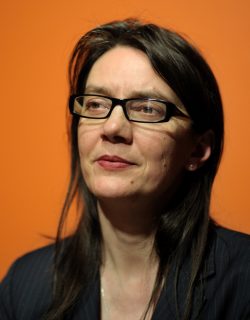
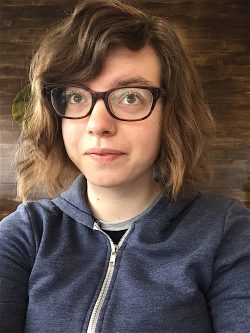
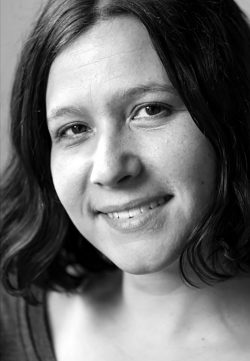
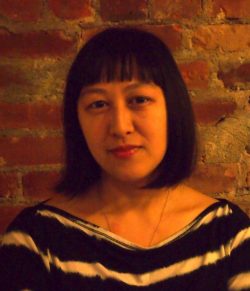

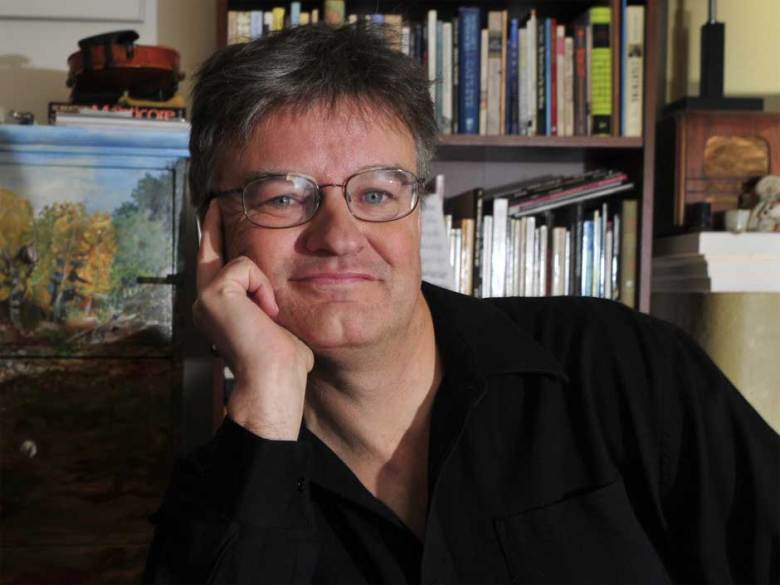
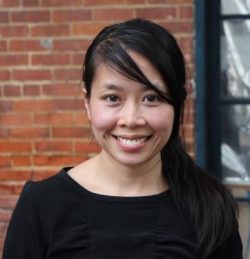
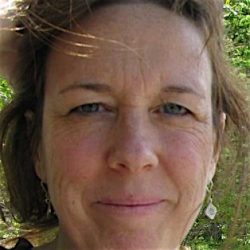

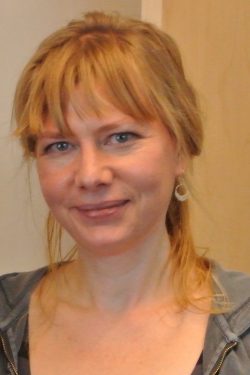
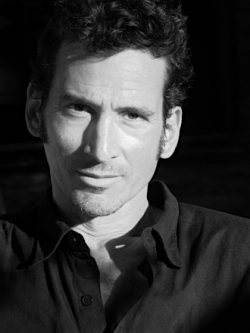
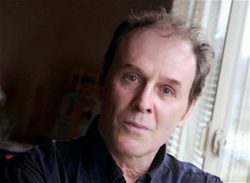
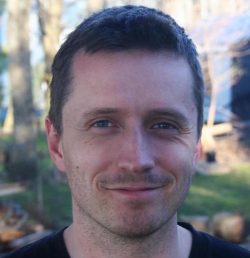
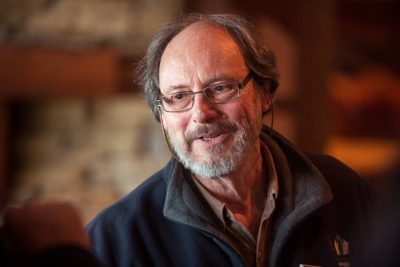

Leave a Reply